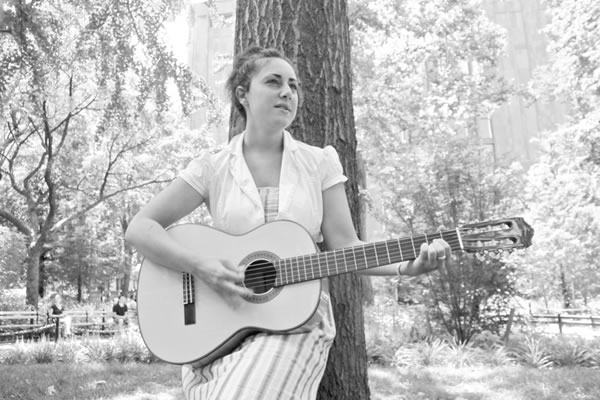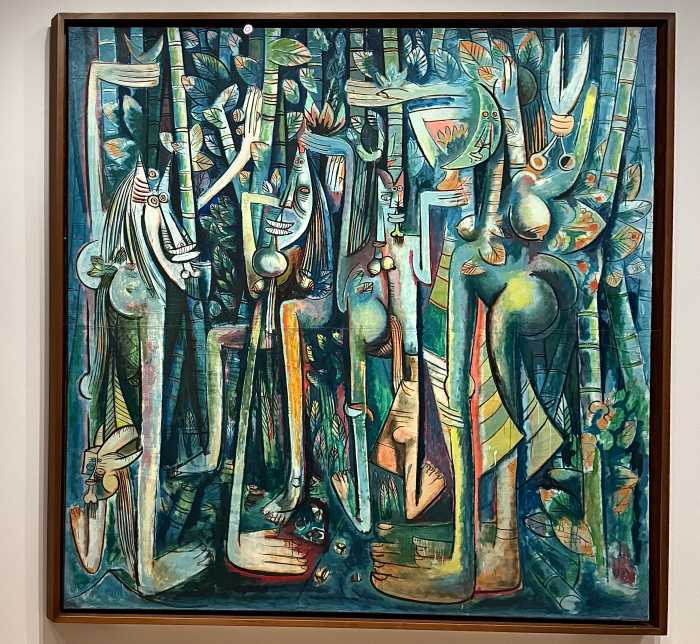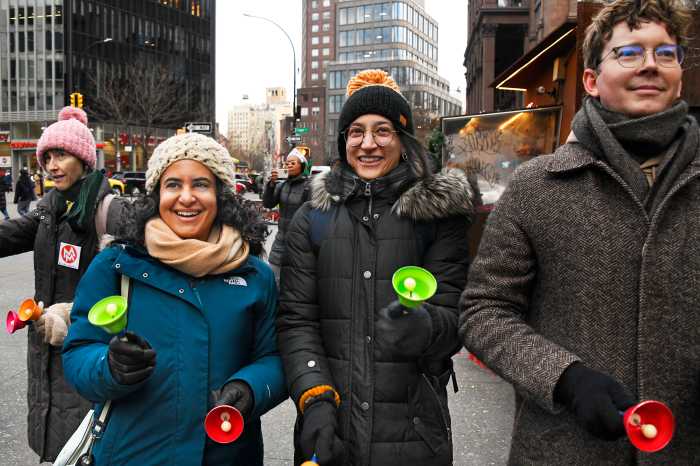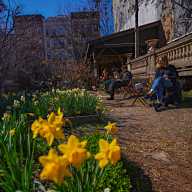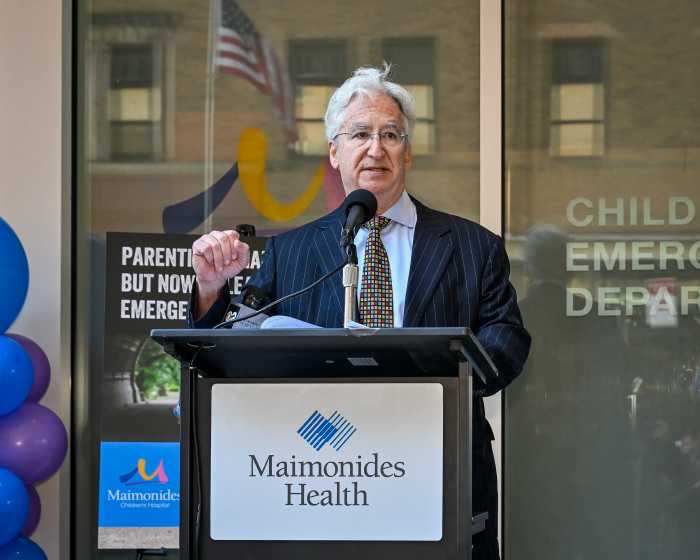By Barrett Zinn Gross
In these troubled times, with the Tea Party terrorists holding Uncle Sam hostage unless and until We The People write blank checks to corporate jet-owning banksters and oil barons, it’s my pleasure to report a story in which the forces of commerce and art have gotten together — to make beautiful music. Where Wall St. meets Bleecker St., meet Galia Arad.
Hedge fund gal Friday by day, singer/songwriter extraordinaire by night, Arad has been balancing her songbook and her checkbook for years in the poverty-defying, high-wire act that aspiring actors, writers and artists of all kinds perform daily on the big stage that is the Big Apple. I had the pleasure of meeting Arad five years ago in a musicianship class. We have since shared the stage several times, and her abundant talents always make quite an impression.
Thanks to the income she derives on the fringes of high finance, Arad recorded her second CD in 2010. Titled “Ooh La Baby,” it features breathtaking vocals and daredevil rhymes, and includes a guest appearance by Shane MacGowan, the legendary lead singer of the Irish rock band The Pogues. Arad’s tribute to him, and all the other tender Irish hearts her bashful beauty has broken, is the charming tune “Four-Leaf Lover Boy.” It’s already in heavy rotation on my 17-year-old daughter’s iPod.
Arad’s career is poised to blow up big. (Her music career, that is.) She was honored in 2008 with the Abe Olman Prize for Excellence in Songwriting by The Song-writers Hall of Fame — an award whose previous winners include John Legend — and was recently invited to perform in London at the Royal Albert Hall. There, she will open for MacGowan and Jools Holland, of the English hitmakers Squeeze.
Her April residency at the well-regarded Ludlow St. venue The Living Room saw the introduction of backup singers Ryan and Gerald, a.k.a the Lollipops. The Lollipops are the subject of a YouTube reality show that can be found at https://www.youtube.com/user/songsfromthedogpound. They are almost as adorable as the girl herself, and can sing, too. Check out the video of Arad’s mash-up of Cee Lo Green’s “F— You” and the original “Better Than Bonnie.” My wife and I saw that performance live, and it brought down the house.
Hoping she can heal the wounds of income inequality, right wrongs and be the boss for just one day, Arad returns to The Living Room stage this Wed., July 20, at 9 p.m. Accompanied by The Assets, a motley crew of her hedge-fund colleagues playing instruments dug out deep from the mothballs just for the occasion, this merger of high finance and low art promises to be a show you can’t afford to miss. Below are excerpts from my recent interview with Arad:
Facing the blank page is every writer’s nightmare. We’ve got 10,000 words at our disposal, not to mention innumerable proper names and onomatopoeia. Add the 12 notes of musical staff and hundreds of possible chords and note durations to the equation, and self-induced catatonia seems like a logical response. But you keep on producing great work. How do you come up with such fresh song ideas and melodies?
Well, I truly feel like there’s always something to write about, the difficult part is finding the time, willpower and focus it takes to get to the heart of the matter. Also, I have to get through a lot of the boring and horrible things that I come up with, until something makes me want to cry or laugh, and then I tunnel-vision the s— out of it! The high I feel in the tunnel-vision phase is what gets me through the catatonia.
You were raised in Bloomington, Indiana, by two conservatory professors. Regina Spektor and Ingrid Michaelson, two female singer/songwriters whom you bring to mind, share a similar background. Were you also classically trained?
I was. I was raised on classical music — and Bob Dylan — in beautiful Bloomington. I tried to escape, but got rejected by every musical theater program I applied to. But I was accepted to Indiana University School of Music. Although it was probably pure nepotism, it allowed me to hold on to the tiny shred of self-confidence that I had left after the other 78 rejections. I didn’t get as much musical theater training as I wanted at I.U., but I could do things other conservatories might not have allowed me to do. I.U. School of Music taught me invaluable lessons: how to practice, what it meant to be a musician. I was surrounded by people who would sacrifice anything for music. If that meant eating from a can for eight semesters and never having a boyfriend, so be it. And what prepares you better for being a singer/songwriter in New York City than eating from a can and having no boyfriend?
How did you come to work at a hedge fund?
Well, Barrett, I climbed the ladder. I started as a dog walker in the city, and one of the families that I walked dogs for was starting up a hedge fund, and one thing led to another, and before you know it, I am a key player in the finance world, marching around in my hot business suit. “Sell that! Buy that! This market is so bullish today!” Sorry, that’s just in my weird, nonmusic fantasy world. I actually never look hot at work, and I mostly make car reservations and do expense reports. I don’t know how, where or why I got here — I would have never guessed it five years ago. But oddly enough, I am so thankful for it. And for a day job, it pretty much rocks. I have health insurance!
You told your I.U. alumni interviewer that your hedge-fund “peeps” viewed you as “an exotic animal.” How do you view them?
Well, I’ve definitely had my moments of feeling like a fish out of water here, and that’s probably why I said that — my own insecurities. I’ve never been treated negatively because of it. To be totally honest, I’ve probably had an unfair advantage because of the fact that I am a musician. Not because they think it’s cool, but because if I mess up, it’s probably because I’m an artist, and we think on the other side of our brain. So it’s slightly forgivable? I really hope my bosses aren’t reading this.
How do I view them? That is a good question. I come from a family of artists, and no one in my family has ever worked in an office — let alone in finance. I still don’t really know what a hedge fund is. But the fact that they have welcomed me, supported me and been flexible with me for years, says it all about how I should view them.
When you spend nine hours a day, five days a week with the same people, they become an odd little family to you. I’ve made amazing friends, and learned about life, and running a business, and where I’ll go to dinner if I’m ever rich. And now, when I hear people talk smack about finance people as a whole, I get annoyed and defensive. They took me in didn’t they? They can’t be that bad!
Not all of them, anyway. So tell me about your gig on July 20 at The Living Room. Is it true that real, live, hedge-fund traders will be playing musical instruments for our entertainment?
We’ve got all walks of the hedge-fund life playing on the 20th. It could be a total disaster. But we are all excited.
Will you hand out bonuses at the end of the gig? Because from what I hear, hedge-fund people only work if there’s a bonus.
All bonuses will be based on their performance. And bonuses will be paid in pats on the back — which is a 100-to-1 ratio to the U.S. dollar. Thank you, Bloomberg calculator, which I wouldn’t have known existed if it weren’t for working at a hedge fund.
For more about Galia Arad and her music, visit her Web site at galiaarad.com .



